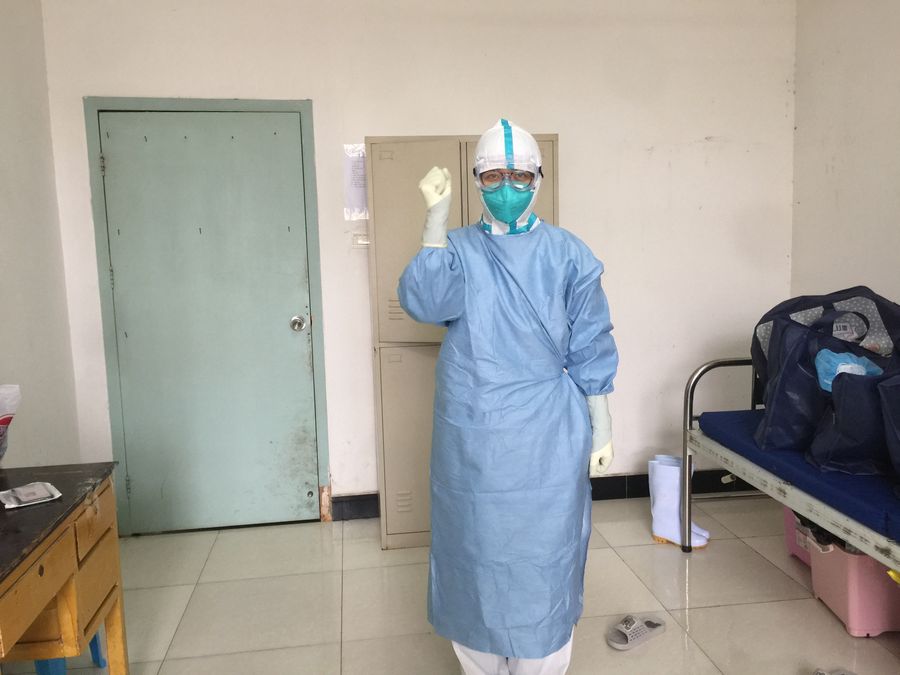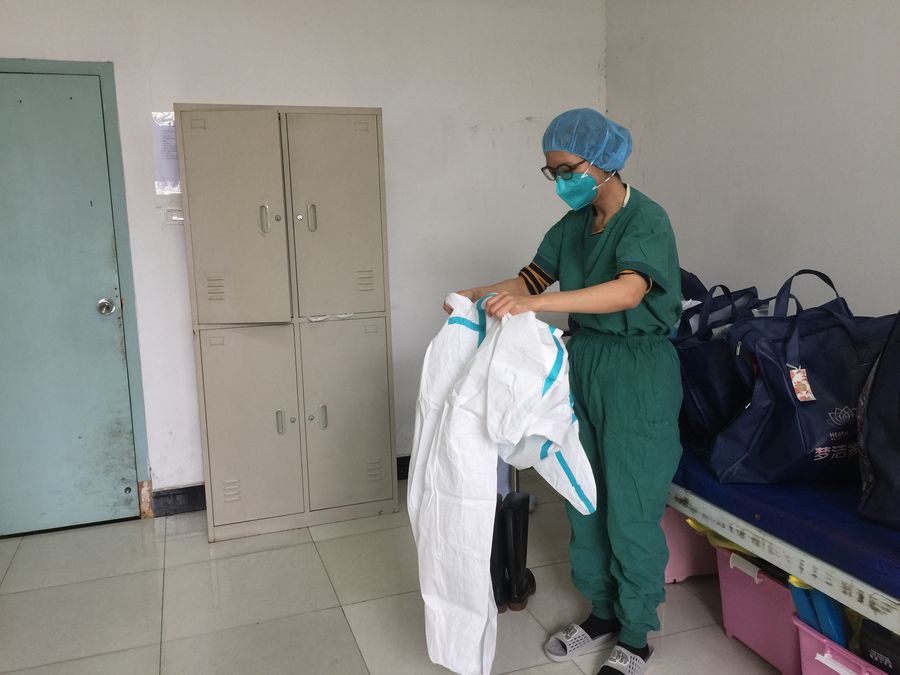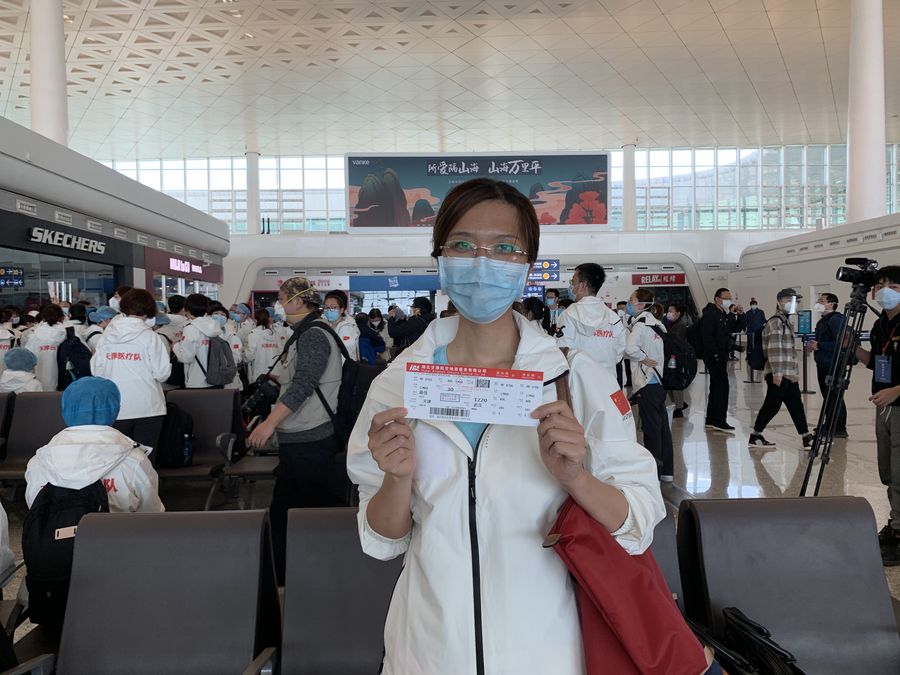
Doctor Lu Jia cheers up for all medics fighting on the frontline of the epidemic. Photo taken in a hospital in Wuhan, central China, on Feb. 14, 2020. (Provided to Xinhua)
"The duty of medics is to save patients, mine is to protect medics from infection." Doctor Lu Jia, in her colleagues' eyes, is a guardian for over 130 medical workers sent to Wuhan to aid the fight against the novel coronavirus epidemic in the hard-hit city.
Lu, 35, is a doctor of the nosocomial infection management department at Tianjin Medical University Cancer Institute and Hospital. She is also among the first batch of 138 medics dispatched from northern China's Tianjin Municipality to Wuhan on Jan. 26.
"At the very beginning, I was very worried about her and even thought of taking her place in Wuhan," said Zheng Lei, Lu's husband and also a doctor in the hospital. "But I know her colleagues need her more."
During Lu's 50-day work in a designated hospital to treat virus-infected patients in Wuhan, her task is to protect her fellow doctors and nurses from being infected with the virus and avoid cross-infection among patients.
Every shift, she guides medics to put on protective gear correctly, sterilizes medical equipment and public facilities in inpatient wards, disinfects air with ultraviolet light, and helps deal with medical waste.

Doctor Lu Jia takes off the protective suit in a hospital in Wuhan, central China, on Feb. 14, 2020. (Provided to Xinhua)
Each day, Lu and her four colleagues supervise and guide medics to put on and take off protective suits more than 150 times and disinfect medical facilities six times on average.
"We are like worried parents, repeatedly reminding medics to take thorough and correct protective measures," the doctor said.
"We also tell medical personnel how to avoid infection caused by splashing and to deal with emergencies after exposure when performing invasive operations," said Lu. "We do our best to remove their fears."
"Our primary task is to create a safe and clean working environment for doctors and nurses at high risk of infection," she said. "To save more patients, medics must protect themselves and not fall down."
Due to the long-term exposure to the high concentration of chlorine-containing disinfectant, infection management doctors suffer from allergies and injuries of the respiratory tract, eye and nasal mucosa.
"Every day, we were the first to put on the protective gear and the last to take it off because we need to make sure that all our colleagues leave the wards safely before we leave," Lu said.
"We five have been working on shifts for over one month and it is hard indeed," said doctor Song Zhouyang, one member of the infection management team. "But our efforts were not in vain when infected patients recovered and none of our colleagues were infected."

Lu Jia waits for the flight to Tianjin at an airport in Wuhan, central China, on March 17, 2020. (Provided to Xinhua)
On Tuesday, the first batch of 3,675 medical staff belonging to 41 medical teams from across China, which have assisted 14 temporary hospitals and seven designated hospitals in Wuhan, started leaving Hubei Province as the epidemic has been subdued.
Lu is among them. "On the first day I came to Wuhan, I was looking forward to returning to Tianjin safely," Lu recalled. "But when this day really came, I had very complicated feelings. I will never forget my experience in Wuhan."
Lu and her colleagues will be quarantined for 14 days upon arrival before she can meet her six-year-old daughter, who has lost her first tooth and learned many new words after her mother's departure to Wuhan.
"I will keep my promise. All of us will return home safe and sound," Lu smiled.

